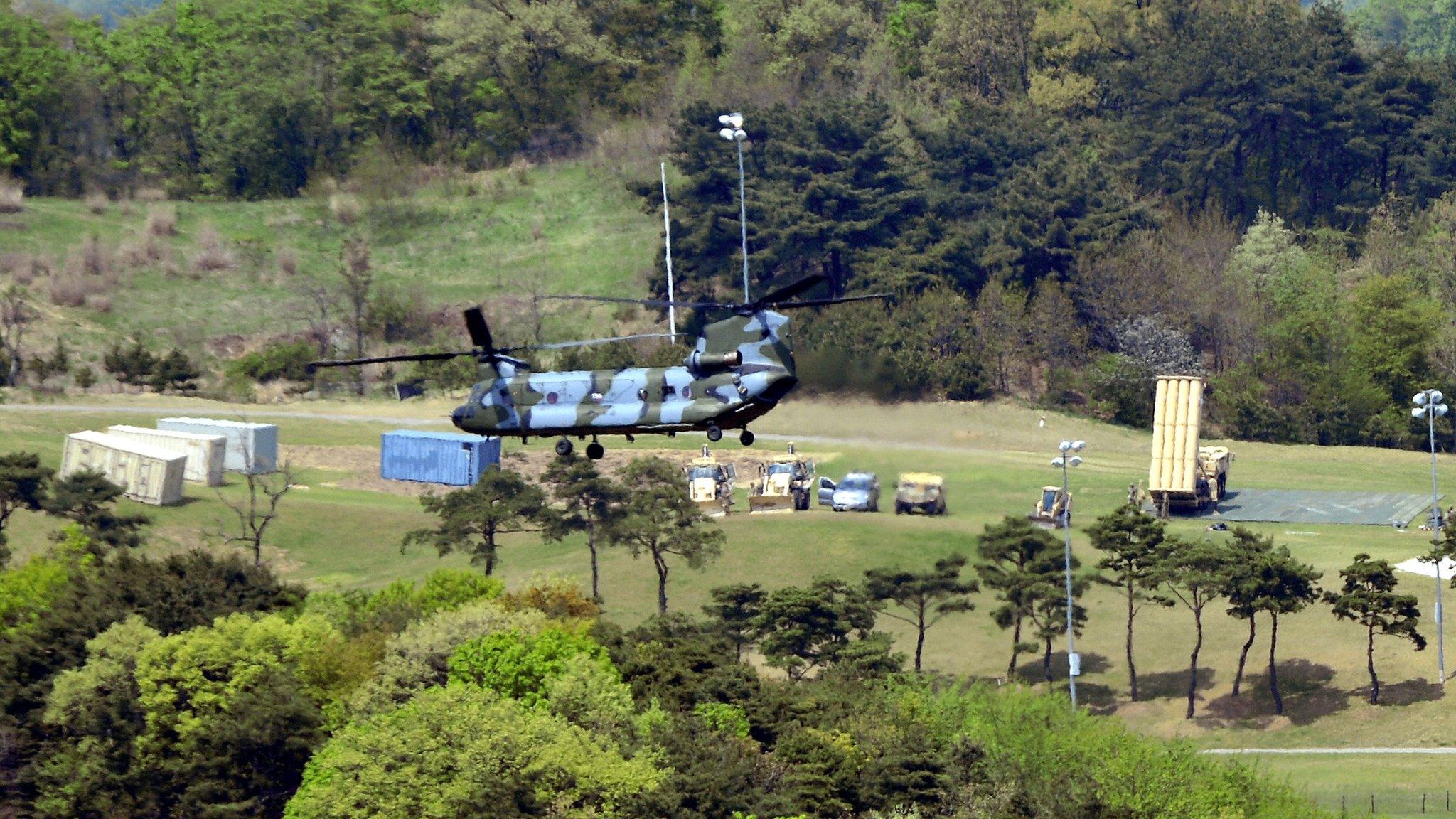Suga: BTS star makes rare reference to China's unofficial K-pop ban
- Published
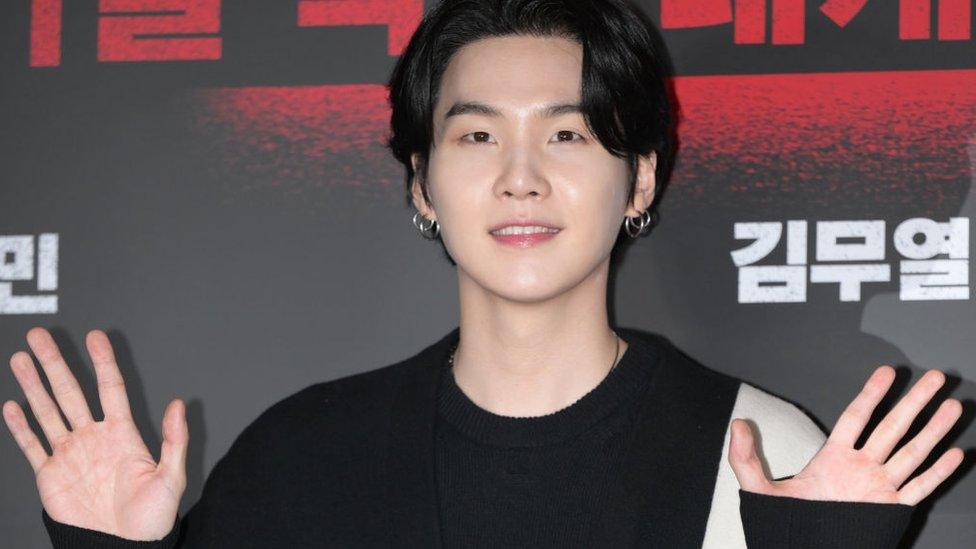
Suga of K-pop group BTS is currently doing a worldwide concert tour.
A member of K-pop supergroup BTS has spoken about South Korean artists' struggle to perform in mainland China.
During an online livestream with fans, Suga made the rare acknowledgement that he “can't perform in China“ as no Korean group can work in the country.
Korean media have attributed his comments to China's unofficial "K-pop ban", at a time of increasing tensions between the neighbouring nations.
Beijing has never recognised the restrictions in place since 2016.
K-pop acts have performed in China's Special Administrative Regions of Hong Kong and Macau - but not on the mainland.
It has also been rare for Korean celebrities to publicly address the obstacles they face in the Chinese market.
However when asked this week in a question session with fans if he would be touring China as a solo artist, Suga replied: "How could I tour in China when we can't perform there?"
He additionally specified: "People of other nationalities in a K-pop group can go work in China, but those groups still can't perform in China as a whole".
The 30-year-old, who also goes by Agust D for his solo work, is currently doing a worldwide concert tour.
China used to be one of the biggest export destinations for South Korea's cultural industry. But very few South Korean celebrities have been able to perform in China since August 2016, and Korean shows and movies have also largely disappeared from TV and cinemas in the country.
Many South Korean businesses have also faced backlash in China and scaled down operations.
In 2017, South Korea appealed to the World Trade Organization to determine if the Chinese government was treating South Korean companies unfairly.
The relationship between the two countries deteriorated after the US' deployment of its THADD missile defence system in South Korea in 2017.
China strongly opposed the deployment, arguing it would affect the regional security balance and allow the US to spy on it.
After Chinese President Xi Jinping and his South Korean counterpart President Yoon Suk-yeol met at the G20 summit last November, Seoul announced that a Chinese streaming platform had resumed distributing South Korean content after a halt of six years.
Beijing's Foreign Ministry also said at the time that China had never implemented the so-called "Korea ban", and China was open about conducting cultural exchanges with South Korea.
But relations between the two countries have gotten worse this year.
In April, South Korea summoned the Chinese Ambassador Xing Haiming over Beijing's criticism of President Yoon's remarks on Taiwan.
South Korea's leader had said in an interview that increased tensions around Taiwan were due to attempts to change the status quo by force, and he opposed such a change.
China's ambassador also drew fresh flak from President Yoon last week for suggesting South Korea had made the wrong decision for choosing to align with the US against China.
He had told a South Korean opposition leader that people who bet between US and China and think China will lose "would definitely regret" their choice.
Related topics
- Published13 October 2020
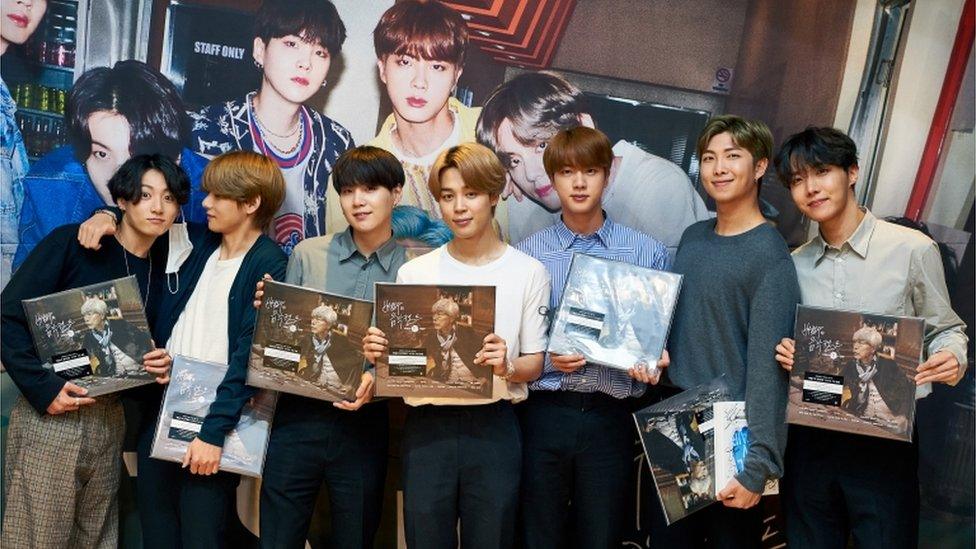
- Published28 May 2021
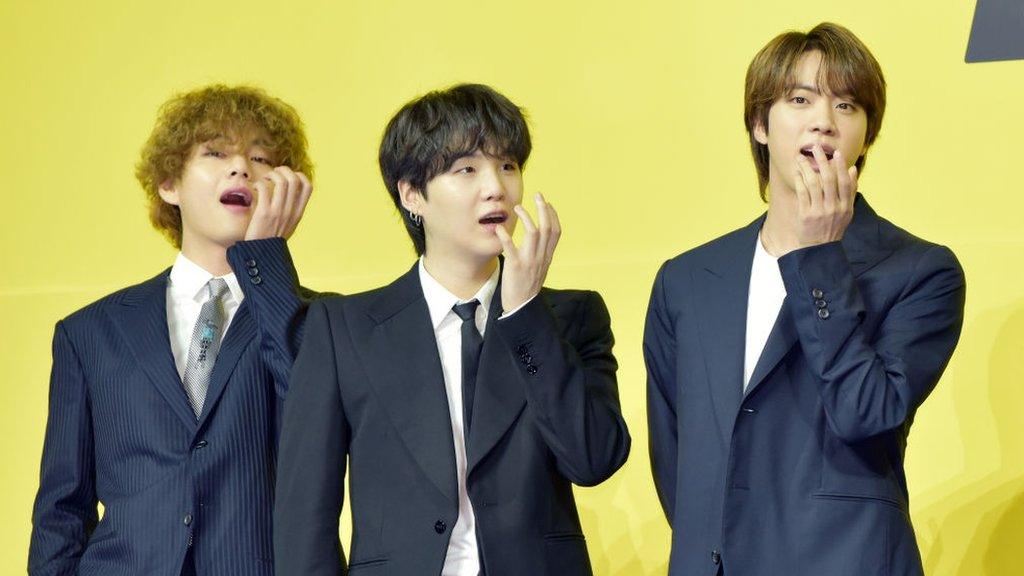
- Published7 September 2021
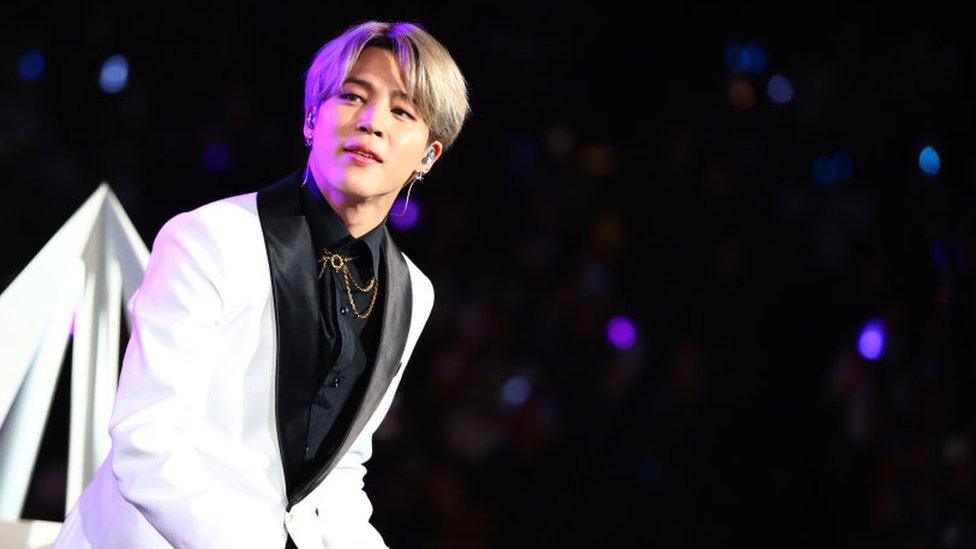
- Published16 May 2023
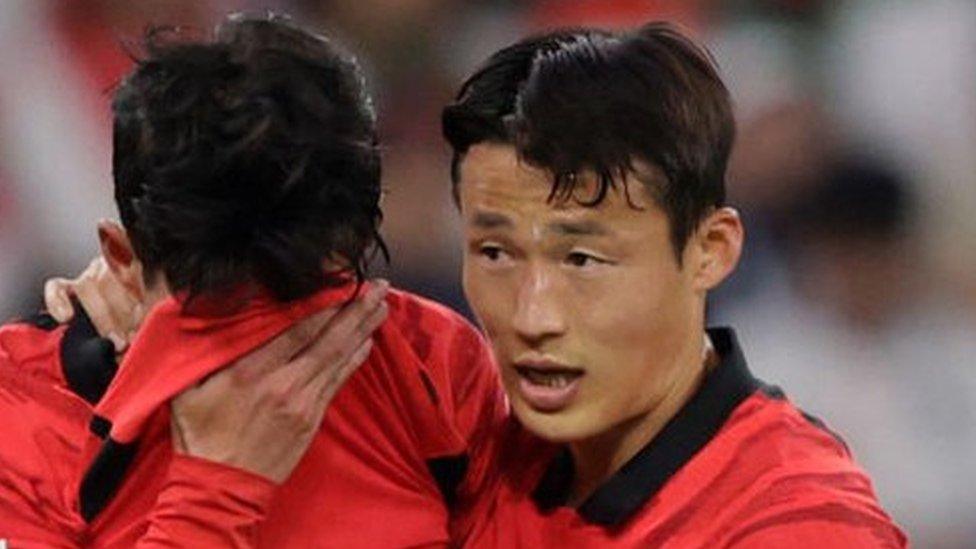
- Published11 May 2017
